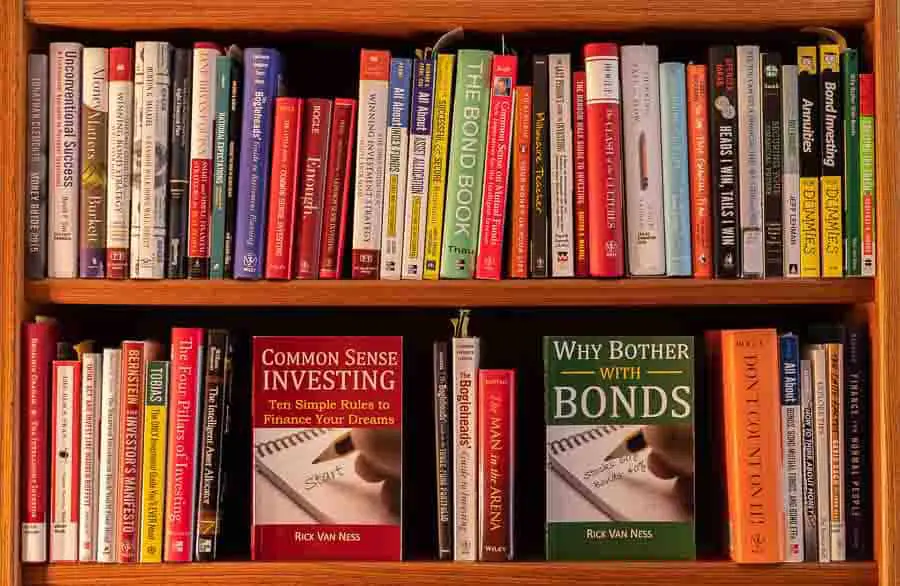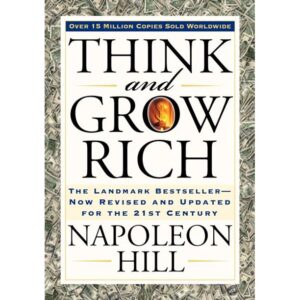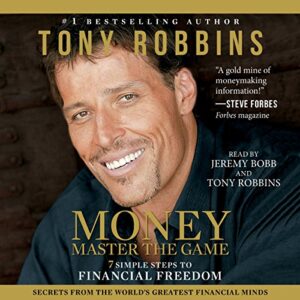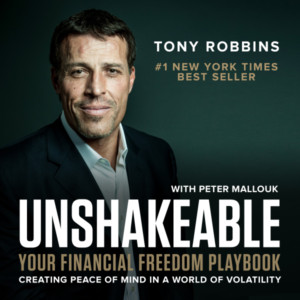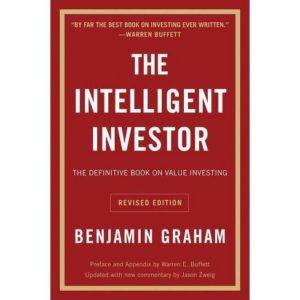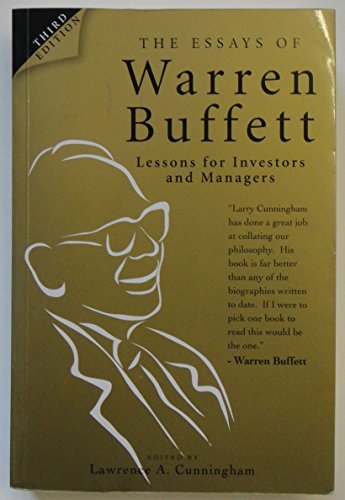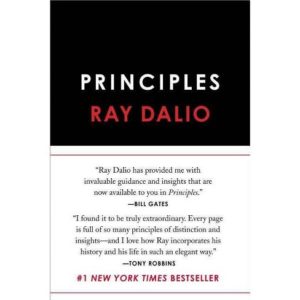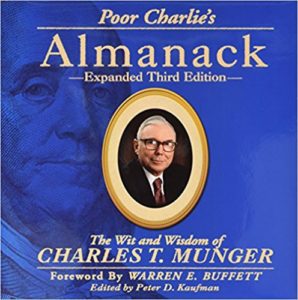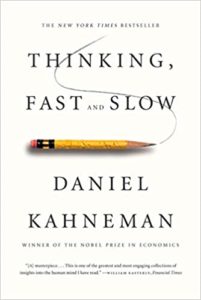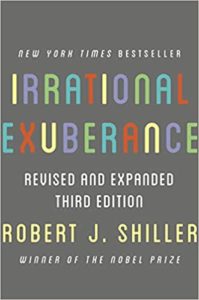If you are looking for the best books on investing for beginners, you have come to the right place. In this article, we will discuss some of the best investing books for beginners.
These books will teach you everything you need to know about stocks, mutual funds, and other types of investments. So whether you are just starting out or you are looking for a refresher course, these books will help get you on the right track!
1. Think and Grow Rich - Napoleon Hil
This classic book was first published in 1937 and it remains one of the most popular books on investing today. In Think and Grow Rich, Napoleon Hill outlines thirteen steps that will help you achieve success in any area of your life, including investing.
This book is a must-read for anyone who wants to learn how to create wealth and achieve their financial goals. Think and Grow Rich is an excellent book to start with for beginners because it lays out a clear path to success. It also provides motivation and inspiration, which is always helpful when starting something new.
2. MONEY: Master the Game by Tony Robbins
In his book, MONEY Master the Game, Tony Robbins breaks down the basics of investing and financial planning in a way that is easy to understand. He also provides readers with actionable steps that they can take to reach their financial goals.
This beginner investing book is a great choice for beginners because it provides practical advice that can be implemented right away. He also interviews many of the top investors in the world, so you can learn from their experiences as well. Each one had its own approach and strategies. It shows that there is no one “right” way to invest, but there are many ways to be successful.
3. Unshakeable: Your Financial Freedom Playbook by Tony Robbins
In Unshakeable, Tony Robbins shares his proven strategies for building wealth and achieving financial freedom. This book is a great choice for beginners because it provides a step-by-step guide to creating a solid financial foundation. He breaks down 4-pillars that should be remembered when investing:
- Tax Efficiency
- Asymmetry
- Diversification
4. The Psychology of Money by Morgan Housel
When it comes to Investing, psychology is a large part of success (or failure). In The Psychology of Money, Morgan Housel dives into how our emotions can impact our investment decisions. This book is a great choice for beginners because it helps them understand how their emotions can influence their investing choices. It also provides actionable steps that investors can take to avoid letting their emotions get the best of them.
5. The Bogleheads' Guide to Investing by Mel Lindauer
The Bogleheads’ Guide to Investing is a great choice for beginners because it provides sound investment advice that is easy to understand. It is based on the investing philosophies of John Bogle, who is the founder of Vanguard Group.
This book for investing beginners covers a wide range of topics, including asset allocation, mutual fund selection, and portfolio rebalancing. It also includes several case studies that illustrate how these concepts can be applied in the real world.
6. The Millionaire Next Door by Thomas J. Stanley
In The Millionaire Next Door, Thomas J. Stanley profiles people who have achieved financial success. He shares their stories and lessons learned so that readers can learn from their experiences.
This book is a great choice for beginners because it provides insight into the mindsets and habits of successful investors. It also debunks many of the myths about wealth, such as the need for a high income or inherited wealth. By reading this book beginners can understand how anyone can achieve financial success.
7. Rich Dad's Guide to Investing by Robert Kiyosaki
In Rich Dad's Guide to Investing, Robert Kiyosaki shares his investing philosophies and strategies. This book is a great choice for beginners because it provides a different perspective on investing.
It also covers a wide range of topics, including real estate investing, stock market investing, and starting your own business. By reading this book you will gain a better understanding of how to create wealth.
8. Who Took My Money? by Robert Kiyosaki
In this book, the best-selling author talks about 'the velocity of money'. This is an alternative approach that focuses on cash flow rather than net worth. Robert covers how to create multiple streams of income and discusses the importance of asset protection.
This book is a great choice for beginners who want to learn about building wealth from another perspective. He teaches the difference between investing for capital gains and investing for income.
He also explains how to use OPM (other people's money) to create phantom income. Rather than invest for retirement, he teaches readers how to acquire assets at a fast pace so they can have the lifestyle they want now.
9. The Intelligent Investor by Benjamin Graham
Benjamin Graham is considered the father of value investing, and his book The Intelligent Investor is considered to be one of the most important investment books ever written to start value investing. Published in 1949, it was described by Warren Buffett as the book that changed his life.
While Warren was just 20 years old, he read the book for the first time. It led to him changing his view on the market and his own investment strategy. It is perhaps one of the first books that taught investors how to value a stock.
The value investment strategy laid out by Benjamin Graham is still widely practiced today. Its concepts and knowledge of markets, and how securities can be mispriced are spot on. The book refers to Mr. Market.
A semi-fictional character that can be extremely irrational and misprice things. Not always the market price is the actual value of the business.
The intelligent investor is a must-read for every investor starting out. While the book is over 70 years old, much of the knowledge and wisdom is still applicable in today’s markets. Value investing has successfully evolved but the key concepts laid out in the intelligent investor are still very relevant today.
This book has helped generations of investors build wealth by teaching them how to find undervalued stocks that have the potential to generate big profits. If you are looking for a book that will teach you the basics of investing, this is the book for you.
10. The Ascent of Money by Niall Ferguson
This book explains the financial history of the world and how money has evolved over time. It is a great book for beginners because it provides a big-picture view of the financial markets and how they work. It goes into the history of various asset classes. It can be a more advanced read, however, beginners will still find it interesting and informative.
11. Money: The True Story of a Made-Up Thing by Jacob Goldstein
Similar to The Ascent of Money, this book tells the story of money and how it has evolved over time. However, this book is more focused on currencies and how they work. He also explains the concepts in a much more relatable way. This book is a great choice for beginners who want to learn about money and how it works.
12. One Up Wall Street by Peter Lynch
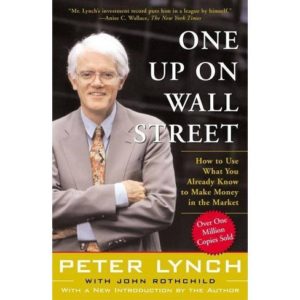
One Up on Wall Street is a great book for beginners who want to learn about investing in stocks. It is easily the best book by Peter Lynch. Peter Lynch, the author, is a highly successful investor who has written several books on the subject. Not only was his investment strategy unique, but so were his results.
One of the most successful mutual fund managers grew his fund. He was known for having an extensive portfolio and knowledge of multiple industries. His personal views on investments are incredibly insightful.
In this book, he provides clear and concise explanations of how the stock market works and how to pick winning stocks. Peter Lynch will walk the reader through the most important initial aspects of stock analysis.
With his help, you will get a better understanding of how to look for stocks, and which ones to pick. You will learn his investment philosophy, and you should carefully read what he has to say.
He also includes case studies of some of his most successful investments. If you're looking for a comprehensive guide to investing in stocks, One Up on Wall Street is a great choice.
13. The Little Book of Common Sense Investing - John C. Bogle
This book is a must-read for any investor who wants to learn how to build a diversified portfolio that will minimize risk and maximize returns. In The Little Book of Common Sense Investing, John C. Bogle shows you how to invest in the stock market by following a simple and disciplined approach that has been proven to work overtime.
14. The Essays of Warren Buffett by Warren Buffett
This book is a collection of essays written by legendary investor Warren Buffett. In these essays, Buffett shares his wisdom on a variety of topics, including investing, business, and economics. Warren Buffett is known for his iconic quotes, and if you want to learn from the best of the best, this book is a must-read.
15. The Richest Man In Babylon by George Samuel Clason
This book is a classic when it comes to learning about investing and building wealth. It was first published in 1926 and has since been reprinted several times. The book tells the story of a man who learns the secrets to wealth from the richest man in Babylon.
The lessons in this book are still relevant today, and it is a great read for anyone interested in learning about investing. For example, one of the key lessons is to "save a tenth of your earnings." This is a simple but powerful message that can help anyone build wealth over time.
16. Principles by Ray Dalio
Investors shouldn’t read only books about stocks and investing. There are more aspects of investing that should be understood. One of them is having the right set of principles to follow during your investment journey.
This is exactly what Ray Dalio tries to provide readers of Principles. Ray has himself experienced hardships of failing and being unsuccessful. He advocates that failing is a natural part of life in the cycle of improvement.
Each time by learning through your mistakes you start going in the right direction. Principles like these have allowed Ray Dalio to become extremely successful.
So much so that he runs the largest hedge fund Bridgewater Associates. If you are interested in business and investments you should seriously consider grabbing this investing book for beginners.
Other investing books worth mentioning
Books are an incredible source of knowledge. Investors should read extensively, as they accumulate knowledge they can make better decisions. I would still like to mention two investing books that are also great choices.
"Poor Charlie's Almanack" is one of the most interesting books I have read. Charlie is a devoted value investor, who shares his wisdom, spreading knowledge with every sentence.
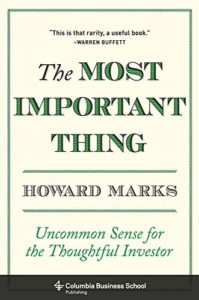 Another book that really impressed me was Howard Marks, "The Most Important Thing". Although the book is fairly small, it is very well put together. Howard Marks goes through the most important things to consider when investing. The result is an outstanding book you should read.
Another book that really impressed me was Howard Marks, "The Most Important Thing". Although the book is fairly small, it is very well put together. Howard Marks goes through the most important things to consider when investing. The result is an outstanding book you should read.
Thinking Fast and Slow by Daniel Kahneman
Once again this is not an investing book per se. Investors need a set of specific attributes to be successful. Not only that but they have wide knowledge on various topics. Being on top of current market news, and analyzing companies is one step. But being able to control our emotions, and prevent lapses in our judgment is also essential.
Thinking fast and slow is a masterpiece, the range of topics it covers, and the knowledge it offers readers is invaluable. Understanding how our decision process works and the numerous bias we can be susceptible to can help us avoid mistakes.
As humans, we have different tendencies that affect our reasoning. This book can help you avoid mistakes. Its lessons are precious and timeless. Daniel Kahneman was eventually awarded a Nobel in economics.
Irrational Exuberance by Robert J. Shiller
The term was coined by Alan Greenspan to describe the market folly during the dot com bubble. Gave the title to this incredible book by Rober J. Shiller. The professor is incredibly astute and immerses the reader in behavioral economics.
In a time of over-speculation, the book states that markets are not always rational. Instead of pricing companies perfectly, the book argues that the stock market is mainly driven by emotions. Fear, greed, these emotions drive stock prices up and down.
Combine an overly emotional market with speculation and herd movement, and we got ourselves the dot com bubble.
The amount of online or web-related companies that surfaced at the time, and today are nowhere to be seen. Not only that but the accounting scandals of Enron and Worldcom still loom in our minds.
This book is a masterpiece that describes an era similar to what we are experiencing today. In fact, the Shiller P/E ratio today is not far from the high during the dot com bubble. Robert J. Shiller gives the reader valuable insights into how the market works. It is incredible how today's market resembles the early 2000's dot com mania.
What is the best book to learn stocks for beginners?
One Up On Wall Street is a great book to learn the ropes of stock market investing. It is packed with valuable information and tips that can help you get started in the world of stocks and investment.
This is because he explains value investing simply and straightforwardly. Peter Lynch is also a great author to read when it comes to investment books. He is a very successful investor, and in his book, he lays out how the average person can beat the professionals at their own game. If you are a beginner, make sure to check out this book to get started on your investing journey!
Which book is best for learning investment?
This depends on your learning style and your reading level. However, two excellent books to start with are Robert Kiyosaki's book 'Who Took My Money' and Tony Robbin's book 'Money: Master The Game'.
The first suggestion is excellent because it teaches you the difference between increasing your financial IQ and accepting a sales pitch. He explains the importance of learning finances clearly without being persuaded by motives that aren't in your best interest.
This is a valuable skill for a beginner learning about investing. The author of this book also reveals the importance of synergistic investing. Essentially, this book provides the framework for how to think about money so you can make sound investment decisions. If you want to improve your financial literacy, this is an excellent book for you.
The second suggestion is helpful for beginners because it reveals how compound interest works and how consistent investing can make you a millionaire. It also gives helpful tips, like starting early and contributing often to your 401k or IRA. Tony Robbins also interviews some of the best investors including Warren Buffet, John Templeton, Jack Bogle, and Ray Dalio.
These interviews provide excellent insight that can help beginners get started on the right foot. Both of these books have differing viewpoints. However, by reading both books, you will be able to understand different aspects of investing.
You can then make an informed decision on which book suits your learning style and needs the best. By consistently reading and learning about investing, you will be able to make sound investment decisions that can help you build wealth over time. So don't wait, start reading today!
Conclusion
There are a lot of great investing books for beginners, but these are some of our favorites. Each one provides valuable insights and lessons that can help you become a successful investor. So if you're just getting started, be sure to check out one (or all) of these books!

